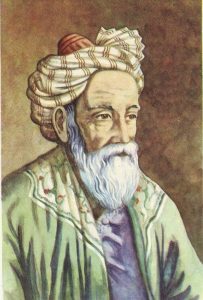
Persian astronomer and poet Omar Khayyam was an artist at expressing indecision. In one his rubaiyats (four-line poems) he wrote:
One hand with Quran, one with wine-cup dight,
I half incline to wrong, and half to right;
The azure-marbled sky looks down on me,
A sorry Muslim, yet not heathen quite.
Indeed, most of us are in that state at least from time to time. We’re not sure where to turn, what to do, which option is the best, and the indecision pains us.
However, it is precisely these scrutinies that make us grow. We do not grow from certainty; we grow from hardships, indecision, and questions. Just as we learn in school by solving increasingly harder questions, life teaches us by presenting us with progressively harder problems.
The crises we are seeing around the world are problems that nature is giving us. If we solve them, humanity will rise to new heights, if we do not, we will fail the test and regress to very difficult times.
In recent decades, nature has begun to present us with problems that we can only solve together. The reason we define these problems as crises is that we are trying to solve them alone. Since there is no way to solve them by ourselves, we consider them unsolvable.
If we agreed to work together to overcome our problems, we would see that they are not problems whatsoever. We would find that in reality, there is overabundance of everything, and we can slow down and enjoy life rather than race against each other pointlessly.
Omar Khayyam seemed to relish indecision. He wrote countless rubaiyats about his uncertainties and qualms. We, too, should learn to appreciate the travails and questions of life, for they are nature’s caring tutoring.
If we stop trying to hang on to our obsolete mindset, we will see what new worlds nature opens up for us, and life will not be painful but a fascinating adventure we will savor.
[Wikimedia Commons: Photo scannée par Utilisateur:Atilin depuis la source soviétique sans droits d’auteur. auteur du dessin : A. Venediktov]